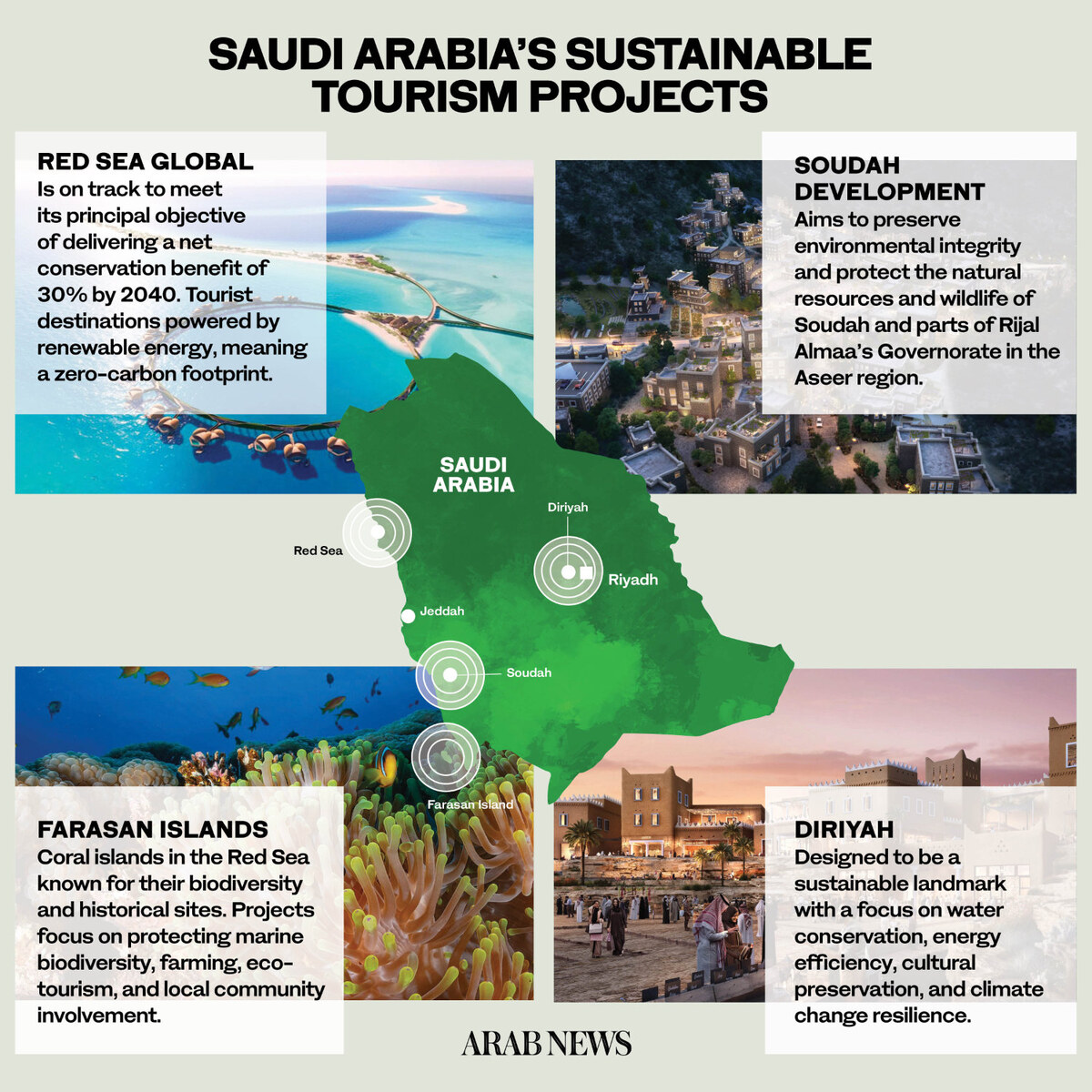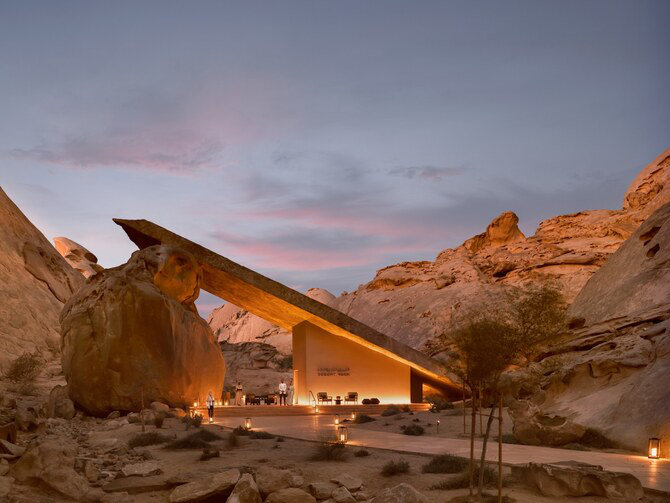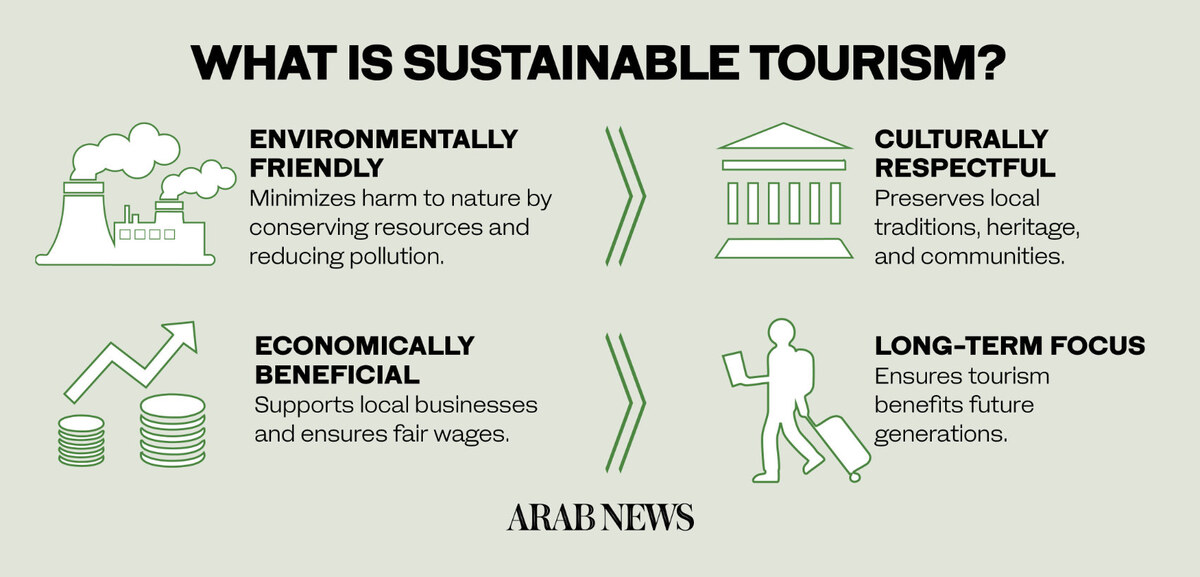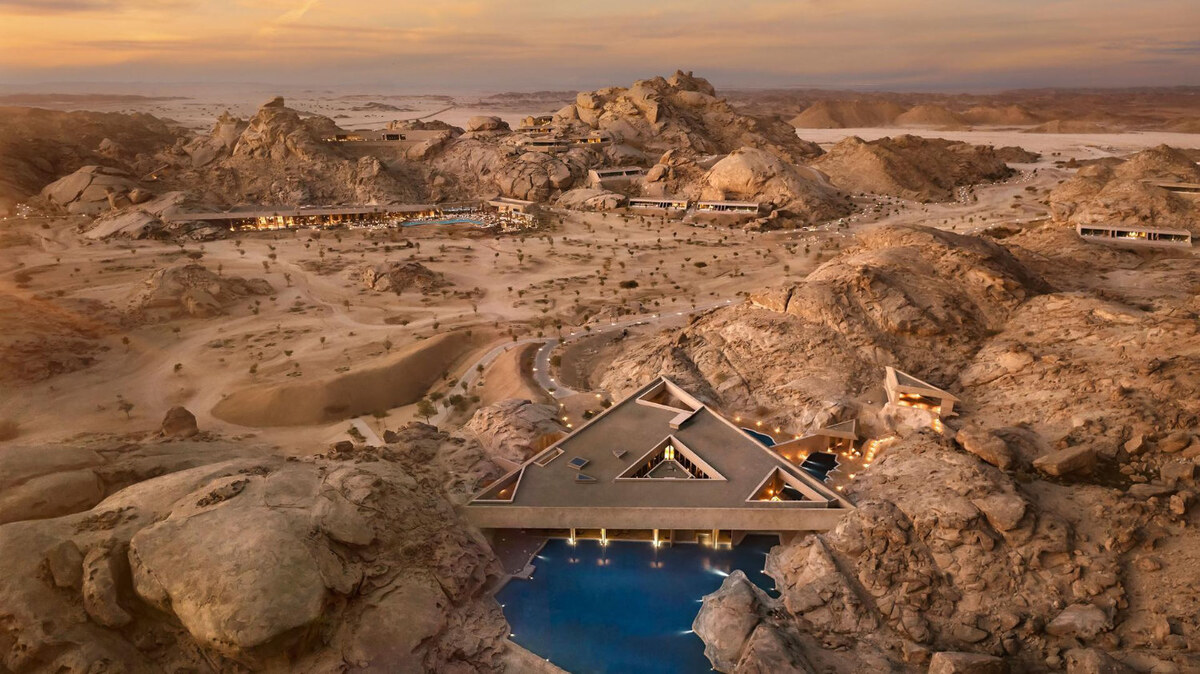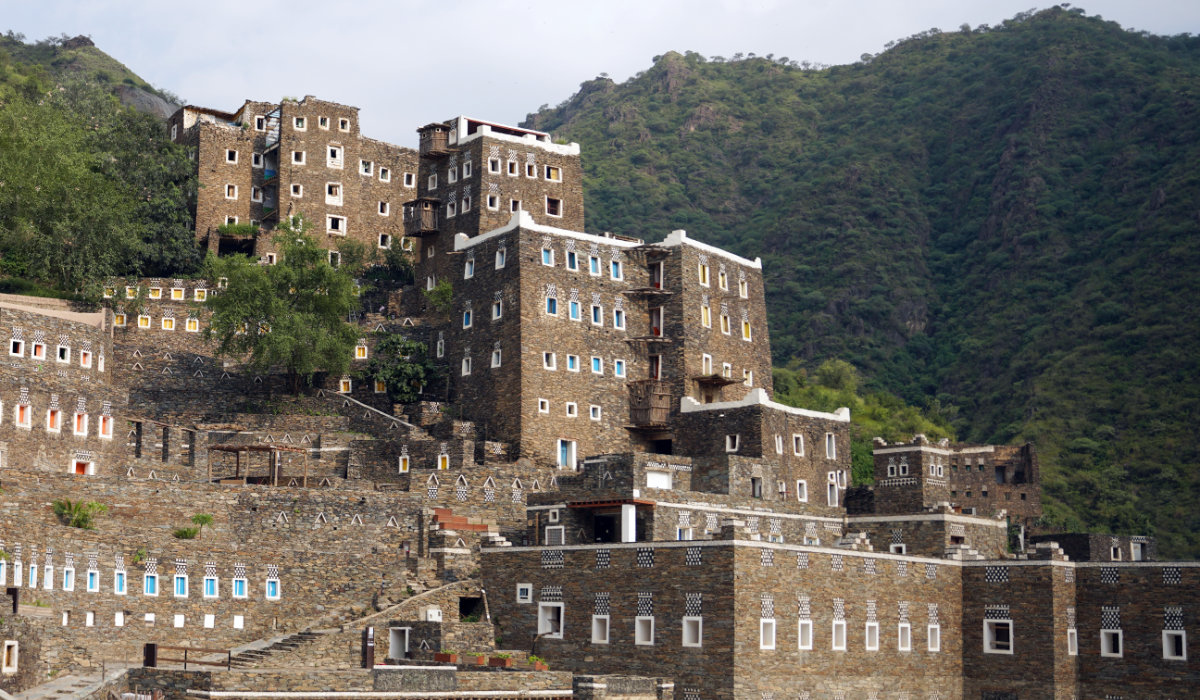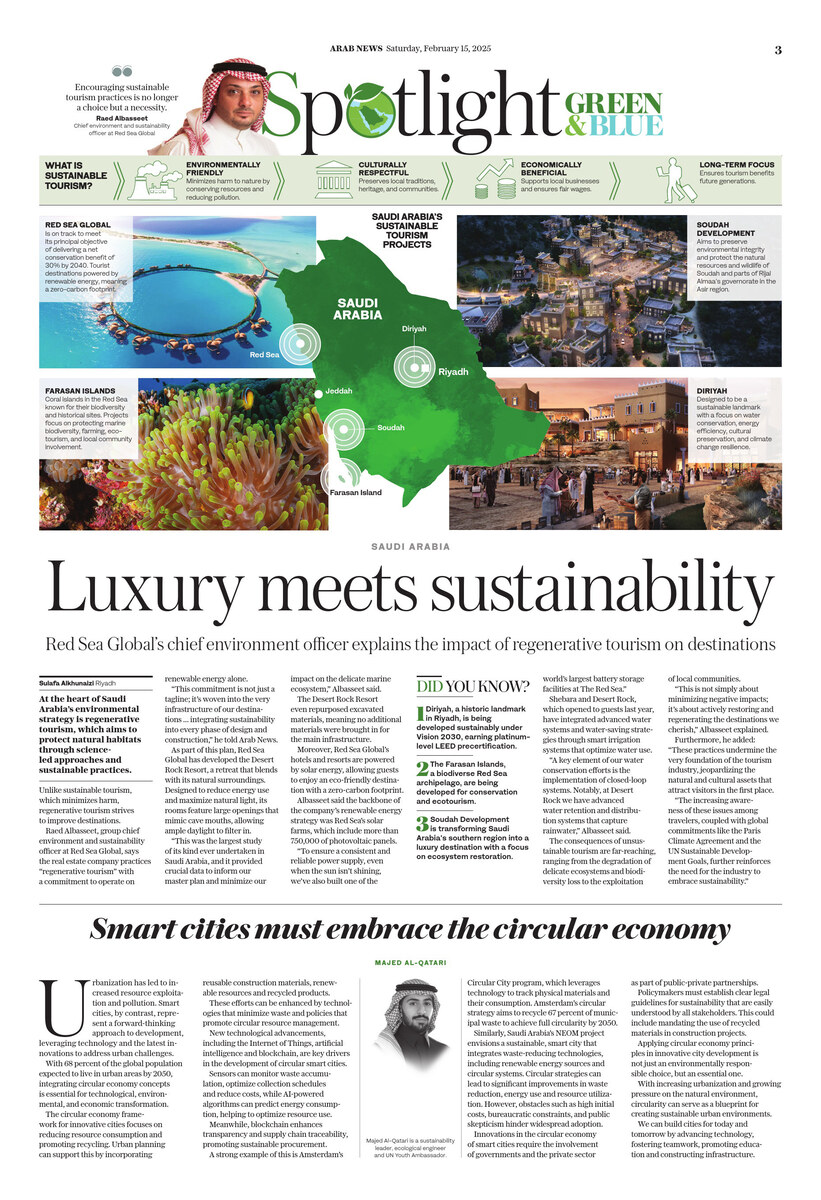Protecting amphibious life to preserve ecosystems

https://arab.news/v8ume
Amphibious species, animals that live both on land and in water, occupy a unique and vital position in the world’s ecosystems. Their dual existence links the terrestrial and aquatic worlds, making them crucial connectors in the delicate balance of our planet’s biodiversity.
As stewards of one of Earth’s most pristine marine environments, Red Sea Global recognizes its responsibility to preserve these habitats.
Protecting amphibious animals maintains the health of entire ecosystems that millions of marine and terrestrial species depend upon. Amphibious animals, such as various species of turtle, play an essential role in the health of marine ecosystems.
These species often serve as indicators of environmental health, with their presence or absence signaling changes in the quality of their habitats. They contribute to the regulation of insect populations, maintain water quality, and support the food ecosystem that sustains larger marine and terrestrial species.
However, these animals are increasingly under threat. Habitat destruction, climate change, pollution, and the introduction of invasive species have led to significant declines in amphibious populations worldwide.
According to the International Union for Conservation of Nature, nearly 41 percent of amphibian species are threatened with extinction. This alarming statistic underscores the urgent need for concerted conservation efforts to protect these vital creatures and the broader ecosystems they support.
The connection between amphibious animals and marine wildlife is profound and complex. Many amphibious species rely on healthy marine environments for their survival.
Coastal wetlands and mangroves, which are vital breeding and feeding grounds for amphibians, also serve as critical habitats for marine life. These areas act as nurseries for fish, provide shelter for crustaceans, and support the lifecycle of countless marine species.
Conversely, the health of amphibious populations can have a direct impact on marine ecosystems. For example, the decline of certain amphibious species can lead to an increase in insect populations, which may affect the health of coral reefs and other marine environments.
This interconnectedness highlights the importance of a holistic approach to conservation — one that recognizes the interdependence of land and sea and the need to protect the natural corridors that link them.
Saudi Arabia’s Vision 2030 is a government program to diversify the Kingdom’s economy away from oil revenue dependence, transform its cultural and environmental landscape, and promote sustainable development.
The Saudi Green Initiative is a framework inspired by Vision 2030. It aims to combat climate change, improve quality of life, and protect the environment for future generations. The initiative focuses on reducing carbon emissions, increasing green cover, and protecting and restoring the country’s diverse ecosystems.
One of the core objectives of the SGI is the restoration of degraded ecosystems, which includes critical habitats for amphibious and marine life. Saudi Arabia has committed to protecting 30 percent of its terrestrial and marine environments by 2030, which aligns with the global 30x30 initiative supported by the UN and other international bodies.
This commitment is crucial in a region where desertification, coastal erosion, and habitat loss are pressing concerns.
At RSG, we are acutely aware of the importance of our role in preserving the unique marine and terrestrial environments under our stewardship.
Raed Albasseet
At RSG, we are acutely aware of the importance of our role in preserving the unique marine and terrestrial environments under our stewardship. Our projects, including The Red Sea and AMAALA, are in some of the most biodiverse marine environments on the planet.
These areas are home to coral reefs, seagrass beds, and mangroves — ecosystems vital to marine life and the amphibious species that depend on these habitats for their survival.
The Al-Wajh Lagoon at The Red Sea is an ecological haven that includes 20 sq. km of mangrove, 50 sq. km of seagrass meadow, and nearly 100 sq. km of complex coral reef. Due to its abundance and sensitivity, we have developed innovative technological approaches to monitor, study, and implement protective measures for the lagoon’s ecosystem.
Sustainability is embedded in everything we do at these new tourism destinations, guiding our development approach. It all starts with selecting the appropriate site to develop following extensive scientific studies.
At The Red Sea, our scientists advised us to develop only 22 of the 90 islands so as not to impact any delicate ecosystems. We have implemented strict environmental standards to minimize our impact on these fragile ecosystems. For instance, our responsible tourism model is designed to enhance the natural environment rather than deplete it.
We are also conducting extensive environmental monitoring to ensure that our activities do not disrupt the delicate balance of these ecosystems. Moreover, RSG is actively involved in research and conservation efforts aimed at protecting amphibious species and their habitats.
We collaborate with leading scientists and conservation organizations to study the impacts of climate change on these species and develop strategies for their protection. This includes restoring coastal habitats, creating wildlife corridors, and implementing measures to reduce pollution and other environmental threats.
To date, we have transplanted 1 million mangrove seedlings across The Red Sea from our dedicated mangrove nursery, which we expect to double in size this year.
We are also growing coral and seagrass at scale. We have developed an artificial wetland for wastewater treatment that is one of the main sources of water for our 1 million square meter landscape nursery — the biggest in the region.
Protecting amphibious and marine life is a challenge that cannot be addressed in isolation. It requires global cooperation and a commitment to sustainable development that transcends borders.
The UN has called for urgent action to protect the world’s biodiversity, and the preservation of amphibious animals and their habitats must be a key component of these efforts. Going forward, it is imperative that we adopt a holistic approach to environmental enhancement — one that recognizes the interconnectedness of all life on Earth.
By protecting amphibious animals, we are safeguarding the health of entire ecosystems. At RSG, we are proud to be part of this vital effort and remain committed to leading the way in regenerative development and environmental stewardship.
As we strive to meet global conservation targets and protect our planet’s biodiversity, we must prioritize the protection of these vital creatures and their habitats. The future of our oceans, and indeed our planet, depends on it.
• Raed Albasseet is group chief environment and sustainability officer at Red Sea Global.



















